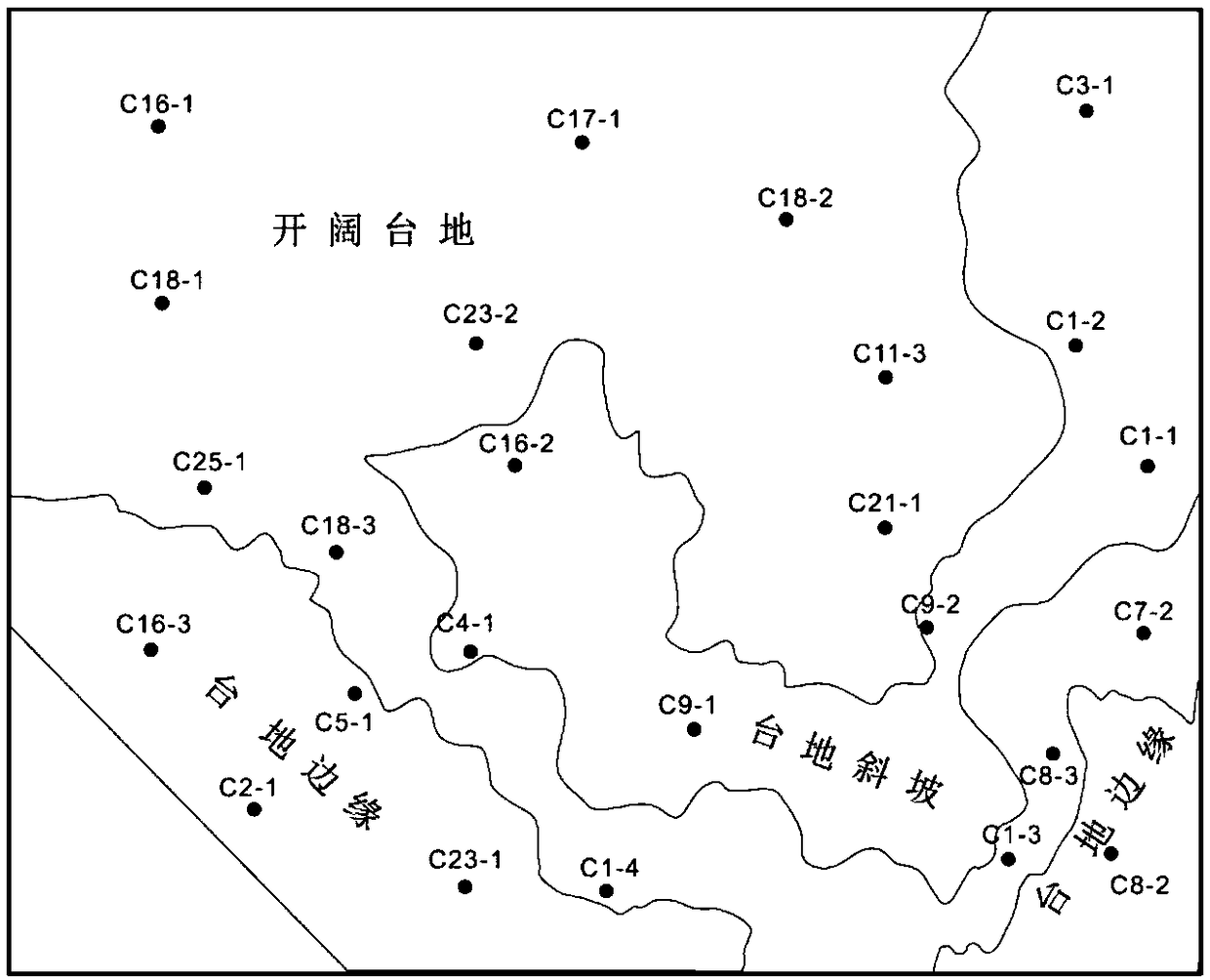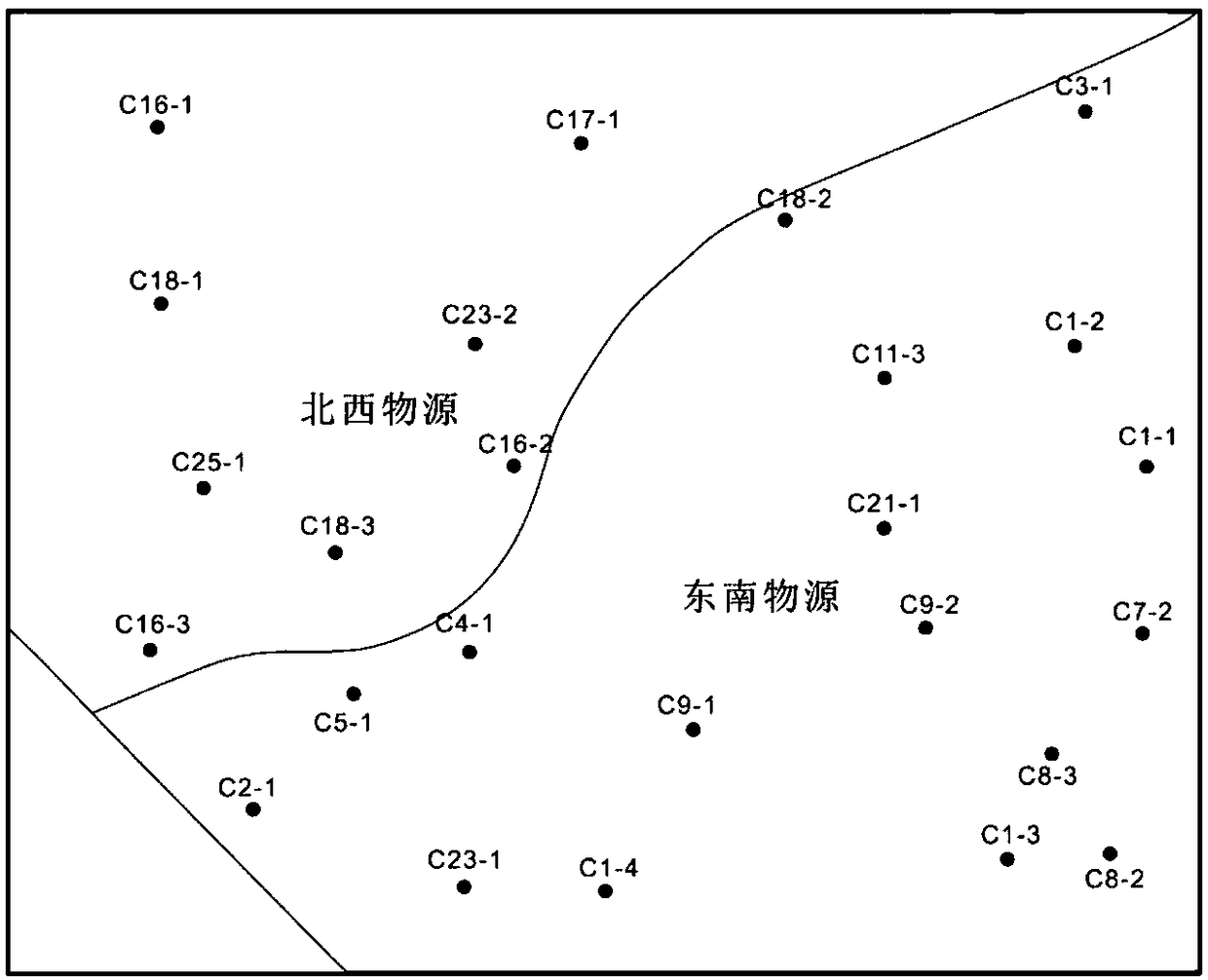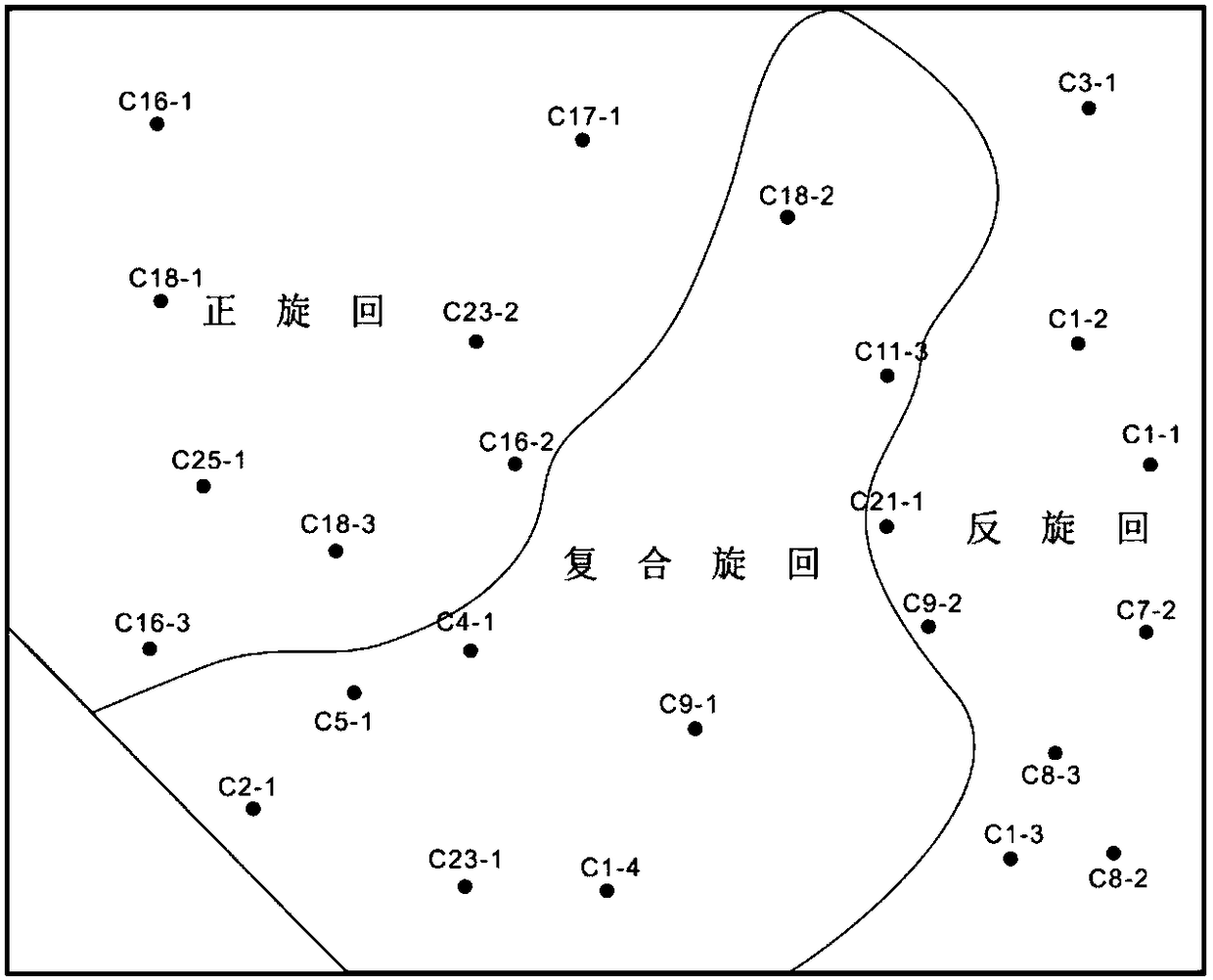Method for determining lithogenous phase boundary point of carbonate reservoir stratum
A carbonate reservoir and determination method technology, applied in the determination of carbonate reservoir diagenetic facies boundary point
- Summary
- Abstract
- Description
- Claims
- Application Information
AI Technical Summary
Problems solved by technology
Method used
Image
Examples
Embodiment 1
[0092] The method for determining the diagenetic facies boundary point of carbonate reservoirs includes the following steps:
[0093] 1) Collect geological data in the study area, which includes the following:
[0094] ①Study result map of sedimentary facies of the target layer in the study area;
[0095] ②Provenance research results map of the study area;
[0096] ③Research result map of fault distribution in the study area;
[0097] ④ Fluid history (pH) data in the study area;
[0098] ⑤ Diagram of the research results of the diagenetic stage of the target layer in the study area;
[0099] ⑥ Map of the research results of the sedimentary cycle of the target layer in the study area;
[0100] ⑦ Analysis and test data of rock thin sections in the study area.
[0101] 2) Establish the original data database
[0102] The original data database includes carbonate sedimentary facies type database F_m, provenance database O_n, pH database P_o, sedimentary cycle database C_p, d...
Embodiment 2
[0165] As shown in the figure, the carbonate reservoir of the Changxing Formation in the northeast of a province’s basin is analyzed using the method of determining the diagenetic facies boundary point of the carbonate reservoir. The specific method is as follows:
[0166] 1 Collect geological data in the study area
[0167] The geological data of carbonate reservoirs in the Changxing Formation in the northeast of a certain provincial basin were collected, and various types of data were classified according to the classification standard of the original data database. The collected geological data include the following:
[0168] Sedimentary facies map of the study area, provenance map of the study area, cycle map of the study area, acid-base distribution map of the study area, diagenetic stage map of the target layer in the study area, fault index map of the target layer in the study area;
[0169] 2. Determine reservoir properties
[0170] (1) Grid chemical area
[0171] T...
PUM
 Login to View More
Login to View More Abstract
Description
Claims
Application Information
 Login to View More
Login to View More - R&D
- Intellectual Property
- Life Sciences
- Materials
- Tech Scout
- Unparalleled Data Quality
- Higher Quality Content
- 60% Fewer Hallucinations
Browse by: Latest US Patents, China's latest patents, Technical Efficacy Thesaurus, Application Domain, Technology Topic, Popular Technical Reports.
© 2025 PatSnap. All rights reserved.Legal|Privacy policy|Modern Slavery Act Transparency Statement|Sitemap|About US| Contact US: help@patsnap.com



